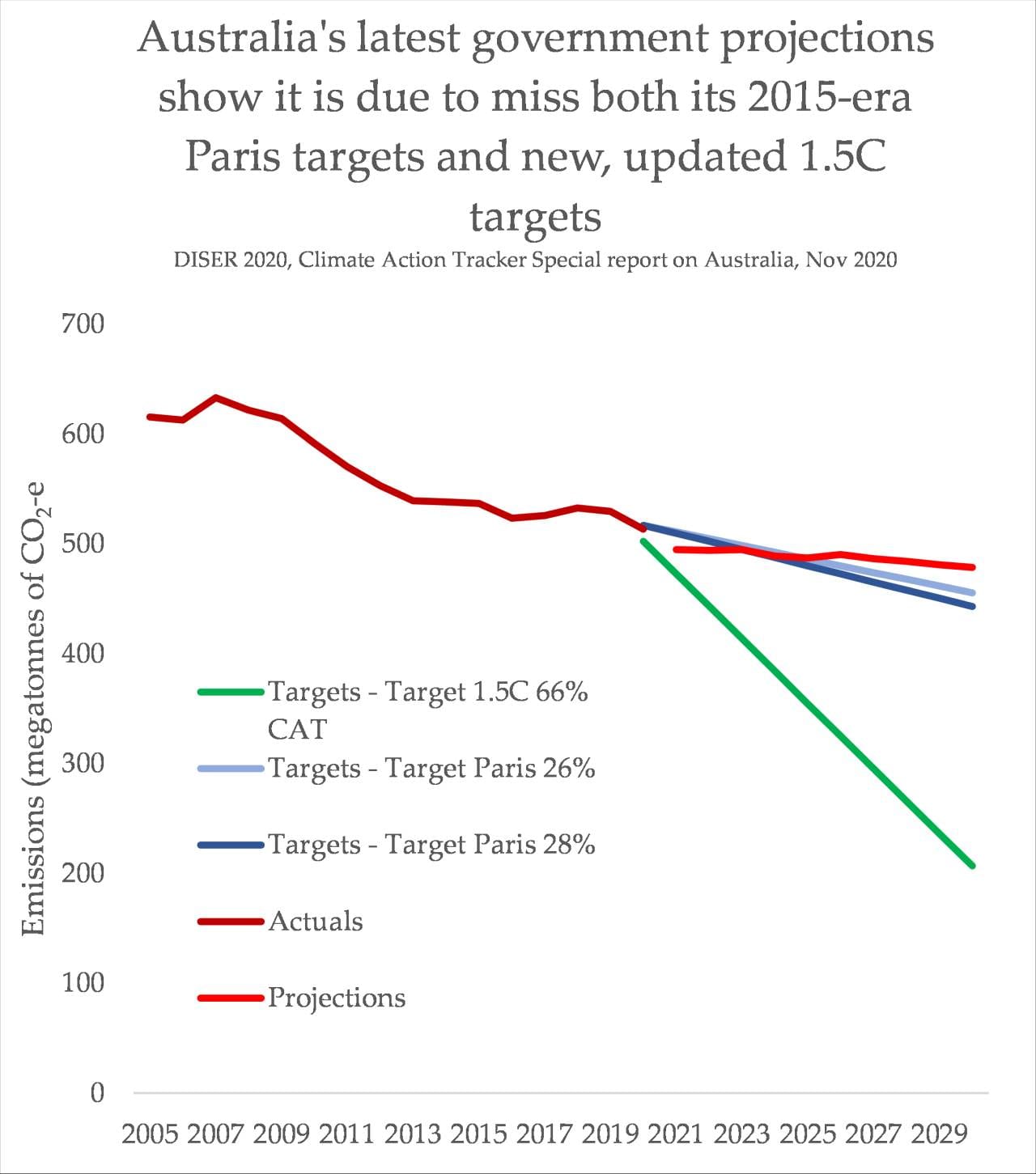As we head into April, the drumbeat on climate is beginning to quicken. It’s another big climate week in America, with Biden announcing a very big plan for new offshore wind – some 30 gigawatts by 2030. Biden is also set to detail a major infrastructure package that likely include record spending on climate, probably relating to electric vehicle charging and new energy efficient homes.
The International Energy Agency is today hosting a pre-COP26 (that big global climate meeting at the end of the year in the UK) net zero summit, just one of many talkfests that will get this issue on the radar and in the headlines more and more as the year goes on.
Australia is going to COP26 without any adjustment to its 2030 emissions reductions target, with either a watered-down net-zero by 2050 target or none at all, and a suite of climate policies that, by design, do nothing to reduce emissions in either the short or the long term. As RenewEconomy revealed last week, the government’s own data shows an impending slow down in renewable energy, due partly to a lack of clear government policy.
Australia is, utterly inarguably, flying badly off the rails on climate. A catastrophically weak pre-existing Paris target isn’t even projected to be met, by the government’s own energy department. There is no effort to reduce emissions from the country’s massive transport and building sectors, through electrification and efficiency retrofits. Any prospect of changes in industry – the only sector acknowledged by government – is decades away at best.
Today, a new report published by the Australian Academy of Science, covered in RenewEconomy, shows exactly the damage that will be caused to Australia is the world continues on its current trajectory. “The argument that Australia doesn’t contribute ‘significantly’ to the GHG emission problem and therefore should not act on climate change ignores the enormous losses that Australia will experience if it doesn’t work with the rest of the world to achieve and exceed the Paris Agreement goals”, Professor Mark Howden said.
What is emerging in recent months and weeks is the exact size of the gulf between what is needed on climate, and what is being done. Australia’s emissions need to fall by around 66% relative to 2005 levels, to align with a 1.5 degree target and be on a pathway to net zero by 2050. But the government’s own projections outline a massive gap:
That green line looks pretty steep, doesn’t it? Well, if Australia had begun acting to reduce emissions when it had signed the Paris climate agreement in 2015, it wouldn’t be anywhere near as steep. There would have been an extra five years to figure out the rapid deployment of renewables, incentivise EVs and clean homes, and wind down fossil fuel extraction and burning.
If Australia’s government had started taking action in 2015, around 21 megatonnes of CO2-e would need to be reduced each year. If it started in 2017, that would be 25. In 2020, it is now around 30. If there is another five years of delay (as it is projected to), there will need to be around 47 megatonnes per year. The latest projections from the Australian government show a reduction rate of between 0.8 and 6 megatonnes per year, up to 2030, with an average of 1.8. These are catastrophic numbers.
The government can exist happily with this extreme, yawning gulf between what’s required and what’s happening because the scale of this problem isn’t widely understood. This scientific benchmark of emissions reductions required to protect human health and the environment barely features in most coverage of this issue.
In the lead up to COP26, the government will be trying to repackage five years of inaction and ten years of further delay as ‘ambition’. But the data are clear – there is a huge, serious and globally significant position of total inaction.











